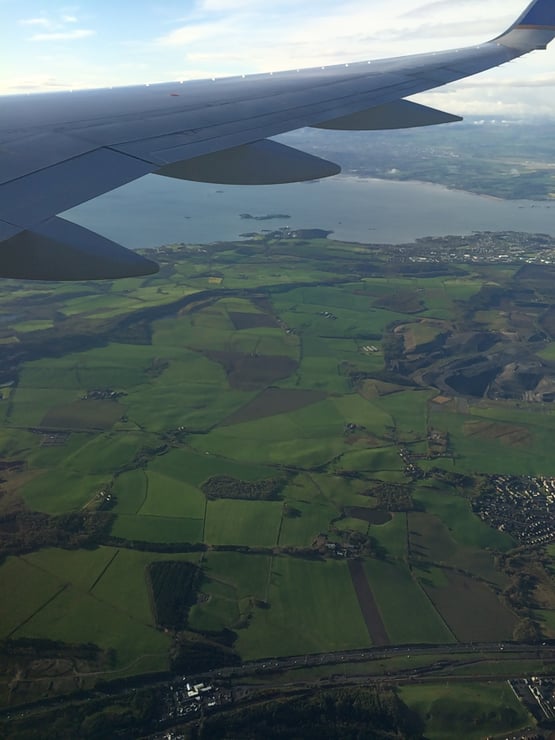
College is like an airport. Full of hustle and bustle, with people lugging around large bags full of supplies necessary for the long trip. Plus the food is overpriced and there aren't any good places to sleep. I make this comparison from experience; I know college.....and airports, well.
So as an experienced flyer and one about to get off my flight, I’m here to lend a few words of advice to help you navigate through the baffling experience of boarding, flying and landing your way through college.
Focus On The Experience
You don’t travel just so you can keep your boarding ticket. Likewise, so many people get stuck on the diploma and see it as the end-all, be-all. But I’m going to give you a heads up: a diploma is just a piece of paper. In a sense, it does not matter. What truly matters however, is the experience you received from that degree.
How much effort did you put into gaining that degree? Did you just pass your classes, or did you involve yourself in them? What did you learn from that degree you can use in your future career? Focus on gaining the experiences and the knowledge of the courses rather than just going through the motions for that boarding ticket.
Change The Way You Study
When I was still a little toothless thing who liked digging in the sandbox at school, my dad taught me one of the most pivotal and memorable lessons regarding all the subjects I took. He said: Don’t study to get an A. Instead, learn so much and find such an interest in the subject that as a consequence, you earn that A.
Notice the subtle verb change? Don’t get an A. Earn it. There is something much more beneficial when you change your way of studying and have the desire to understand the subjects. It becomes less like work and more like fun. After all, isn’t the place you’re traveling to supposed to interest you?
Plan Out A Rough Draft Of Your Semester Plans
No one likes taking an extra semester because they didn’t plan right. The cost, time, and frustration certainly are not worth it. I also say this out of experience. Figure out ahead of time how many credits per semester you need to graduate when you want to—otherwise, this’ll be one long, grueling trip for you, and you’ll be tired and cranky at the end of it.
Search and Participate In Programs You’re Interested In
My advice to you beginning or intermediate flyers would be to get involved in your program’s events, organizations, jobs, and internships. Not only do you gain experience, but you also get to know your program directors, classmates, and professors on a personal level. Also? Scholarships. Sometimes programs extend scholarship deadlines because they didn't have enough students apply for them. Your program is willing to help you succeed, but they can't help you if you don't try.
Get To Know Your Professors And Fellow Major Students
Let's go back to the analogy of airports. If you get to know the people who are on the same flight as you, you may get more opportunities—you can change your seating, the flight attendant might sneak you an extra bag of pretzels, you might get to sit by the window, etc. Professors will help you look into grad school and send out letters of recommendation, or other students may give tips and maybe even lend out past textbooks from previous classes they have taken. These people are your flight buddies—becoming friends with them make your travels a lot easier.

You Will See Yourself Progress—And Others Progress As Well
I’ve personally seen how far I’ve come since day one. I’ve learned a lot about the crafts of my program and I'm proud of it. But just when I’m about to saddle up on my high horse, I see the frequent flyers, who are extraordinarily brilliant and make me feel like a preschooler on a bike with training wheels again.
And this is normal. People progress at different levels and at different times. What is important is to focus on making sure you have more experience than before you left, and that you have bettered yourself by the time you arrive.
Happy travels!

-1.png)
